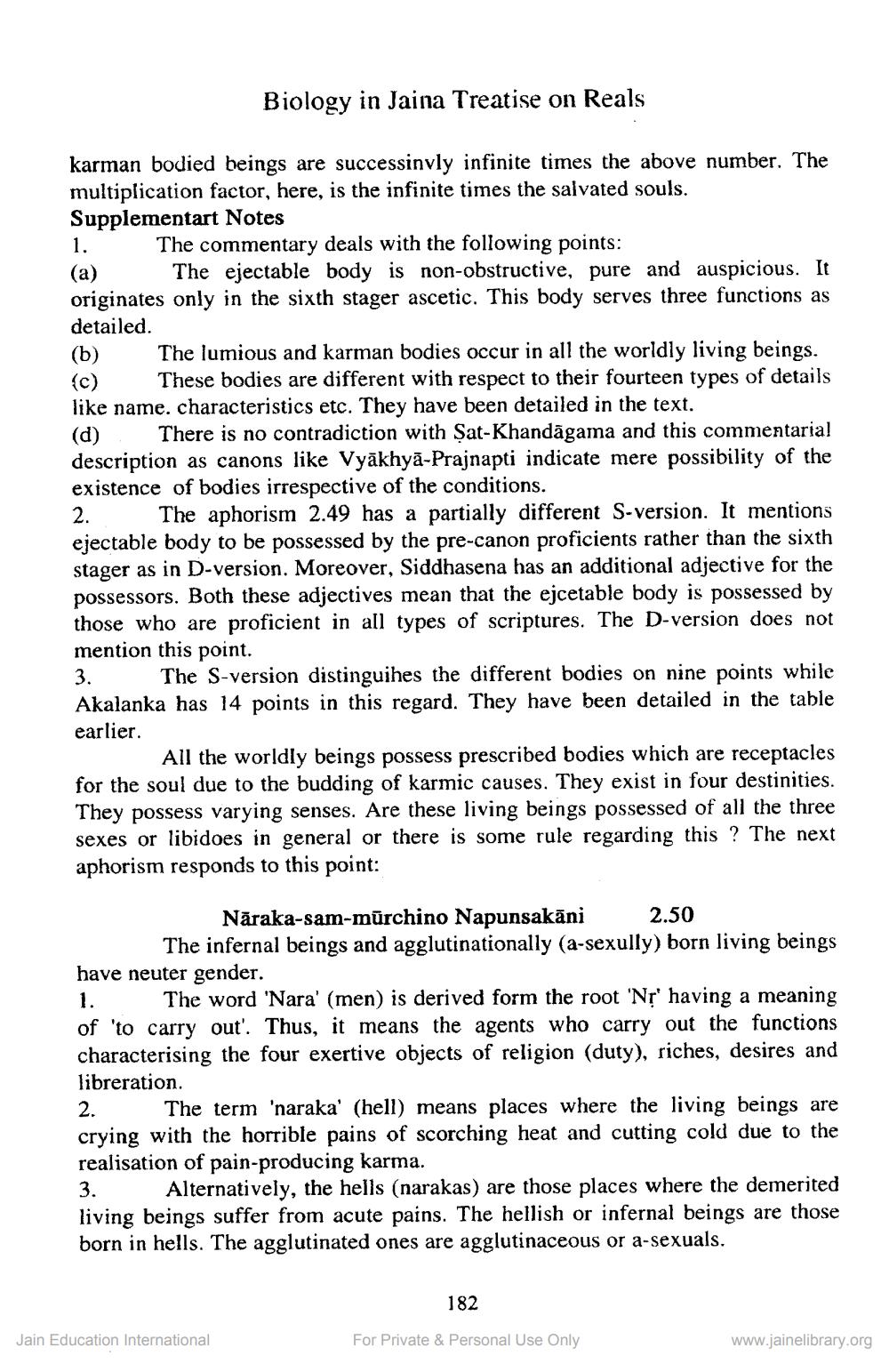________________
Biology in Jaina Treatise on Reals
The
karman bodied beings are successinvly infinite times the above number. The multiplication factor, here, is the infinite times the salvated souls. Supplementart Notes
The commentary deals with the following points: (a) The ejectable body is non-obstructive, pure and auspicious. It originates only in the sixth stager ascetic. This body serves three functions as detailed. (b) The lumious and karman bodies occur in all the worldly living beings. (c) These bodies are different with respect to their fourteen types of details like name. characteristics etc. They have been detailed in the text. (d) There is no contradiction with Sat-Khandāgama and this commentarial description as canons like Vyākhyā-Prajnapti indicate mere possibility of the existence of bodies irrespective of the conditions. 2. The aphorism 2.49 has a partially different S-version. It mentions ejectable body to be possessed by the pre-canon proficients rather than the sixth stager as in D-version. Moreover, Siddhasena has an additional adjective for the possessors. Both these adjectives mean that the ejcetable body is possessed by those who are proficient in all types of scriptures. The D-version does not mention this point. 3. The S-version distinguihes the different bodies on nine points while Akalanka has 14 points in this regard. They have been detailed in the table earlier.
All the worldly beings possess prescribed bodies which are receptacles for the soul due to the budding of karmic causes. They exist in four destinities. They possess varying senses. Are these living beings possessed of all the three sexes or libidoes in general or there is some rule regarding this ? The next aphorism responds to this point:
Nāraka-sam-mürchino Napunsakāni 2.50
The infernal beings and agglutinationally (a-sexully) born living beings have neuter gender. 1. The word 'Nara' (men) is derived form the root 'Nļ' having a meaning of 'to carry out'. Thus, it means the agents who carry out the functions characterising the four exertive objects of religion (duty), riches, desires and libreration. 2. The term 'naraka' (hell) means places where the living beings are crying with the horrible pains of scorching heat and cutting cold due to the realisation of pain-producing karma. 3. Alternatively, the hells (narakas) are those places where the demerited living beings suffer from acute pains. The hellish or infernal beings are those born in hells. The agglutinated ones are agglutinaceous or a-sexuals.
182
Jain Education International
For Private & Personal Use Only
www.jainelibrary.org




